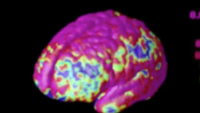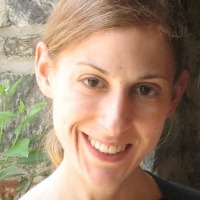Teach Recovery
Learn To Help People With Mental Illness Lead a Rewarding, Productive Life.

Teach Recovery
We teach about cognition, motivation and behavioral approaches to help people with severe mental illness lead productive lives. Our educational modules are self-paced, engaging and informative.
About Us
Teach Recovery aims to provide mental health professionals with information about cognitive health in people with psychiatric disorders. There is increasing recognition that cognition is vital to optimal independent functioning, but little information about how to best address it in clinical practice. Clinicians want to be able to recognize cognitive problems and their impact among people with psychiatric illness. They want a strong foundation of knowledge for successful implementation of recovery-oriented cognitive interventions.
Teach Recovery was designed for mental health professionals from the fields of psychiatry, psychology, nursing, social work, counseling and occupational therapy who are involved in the clinical care of people with psychiatric disorders. Learners will have access to a range of training materials that are firmly based on research and years of clinical expertise. By using a web-based platform, learners across the globe will have access to an informative, illustrative and interactive set of courses that bridge clinical science and clinical practice, Teach Recovery empowers professionals and mental health agencies to integrate effective cognitive intervention approaches with routine clinic practices, and thus optimize mental health service outcomes for the clientele they serve.
Our Mission
Our mission is to provide mental health professionals ongoing access to information so they can gain knowledge about addressing cognitive health as it relates to psychiatric recovery. Through education, Teach Recovery empowers the mental health professional to change lives.
Our Team
Alice Medalia, PhD
- Professor of Medical Psychology; Director of Psychiatric Rehabilitation
Dr. Medalia is an international leader in the field of psychiatric rehabilitation, who focuses on the treatment of neuropsychological disorders in psychiatric illness. She developed the widely used NEAR (Neuropsychological & Educational Approach to Remediation) model to help people with mental illness improve their thinking skills in such areas as attention, memory, processing speed and problem solving. She lectures and consults to agencies worldwide and conducts training workshops for clinicians who want to learn how to provide cognitive remediation to psychiatric patients. Dr Medalia works with policy makers, researchers, clinicians, families and patients to bring awareness about the impact of cognitive dysfunction on recovery. In order to facilitate greater awareness about cognition in the rehabilitation field, she started the largest conference on this topic, Cognitive Remediation in Psychiatry, which takes place the first Friday in June in New York City. Her research focuses on the factors that impact a successful recovery of neuropsychological functions. Dr Medalia’s contributions as a Neuropsychologist, Researcher and Advocate of Cognitive Remediation have won her awards from professional and advocacy groups.

Tiffany Herlands, PsyD
- Clinical Director, The Lieber Clinic; Director of Rehabilitation, Columbia University Psychiatry, Eastside; Assistant Professor of Psychiatry
Dr. Herlands received her doctorate in Clinical Psychology from the Ferkauf Graduate School of Yeshiva University. She completed a clinical internship in neuropsychology on the neuropsychiatric service at Montefiore Medical Center. After completing her internship, Dr. Herlands was awarded the Marie Kessel Fellowship, a clinical and research fellowship in the neurocognition and treatment of cognitive impairment in schizophrenia spectrum disorders. Following the fellowship, Dr. Herlands became an attending neuropsychologist at Montefiore Medical Center and an Assistant Professor of Psychiatry at the Albert Einstein School of Medicine. In 2006, she was promoted to Director of Neuropsychology in the Department of Psychiatry at Montefiore Medical Center. Later that year, she joined Columbia University to take part in the development of the Lieber Clinic and was appointed Clinical Director. Dr. Herlands lectures regularly on a broad range of topics related to rehabilitation and recovery in psychotic disorders, intrinsic motivation, and cognition, and consults on complex cases.

Enid Gertmenian-King, MSW
- Therapist
Ms. Gertmenian-King has been a clinical social worker at the Columbia University Day Treatment Program since 2008. She received her Bachelor degree from Eugene Lang College where she majored in psychology and literature. She worked on several NIMH-funded research projects for the next five years, and then completed a graduate degree in social work at the Columbia University School of Social Work with a focus on mental health. She worked at several community mental health programs before joining Columbia University Department Of Psychiatry’s Day Treatment Program and the Lieber Clinic. Here, she has developed curriculum for groups to address executive functioning and self-esteem problems for individuals with ADHD as well as for those with mood and psychotic disorders. She has also adapted Dialectical Behavioral Treatment (DBT) for individuals with psychotic disorders.

Alice Saperstein, PhD
- Writer

Course 1: Cognitive Dysfunction in People with Psychotic Disorders

Course 1 focuses on defining areas of cognitive dysfunction in people with psychotic disorders and helping learners to recognize how problems manifest.
Course 2: Cognitive Remediation for People with Psychiatric Disorders

The focus of Course 2 is on clinical approaches to addressing cognitive dysfunction across a range of psychiatric disorders.
Course 3: Executive Functioning Training

In this lecture you will learn about a CBT oriented group therapy to target a set of cognitive skills called Executive Functions.
Teach recovery is a non-profit educational platform provided through The Department of Psychiatry at Columbia University Irving Medical Center with generous funding from Frank and Patricia Zarb.




